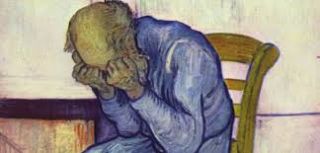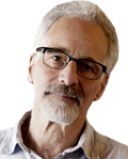Religion
Religion and Addiction: Void-Fillers?
Losing one's faith can feel like facing everlasting abstinence.
Posted May 26, 2015
Last post, I talked about the emptiness that confronts the addict contemplating abstinence. If you've been an addict for a while, then you know exactly what I mean.

Some people refer to this cliff edge as a void or abyss. And today I want to compare it to the enormous gulf faced by deeply religious people who can no longer believe (e.g., in their church, their religion, or their God). I'm saying that the loss of faith for the religious is very similar to what addicts feel when they stare into a future of total abstinence. Weird, isn't it?
So what is it that we human beings so greatly fear losing?
What we want so badly, and what both religion and addiction appear to offer, is a sense of connection that binds our lonely little selves to something else, something bigger, something that feels like certainty in a world that is beyond control. This longing for connection and "ongoingness" is pretty fundamental. So much so that it embeds itself in the neural circuits responsible for desire and goal-pursuit -- yes, the infamous striatum (including the nucleus accumbens) that I've referred to many times in this blog. We wish, and we seek, and we crave, and we long for that thing we seem to be missing, because our brains are made for seeking what we don't have.
In his research and his writings, Kent Berridge highlights something very important about the brain. The neural machinery of desire is this rather extensive network of brain matter—literally, it includes a large area in the middle of the brain, and its tentacles reach into the brain stem, the amygdala, and the prefrontal cortex. That's a lot of territory. Whereas the neural machinery of pleasure is this little hunk of tissue about a square centimeter in size. In other words, desire is much more important than pleasure, when measured in terms of neural real estate.
I'm certainly not dissing desire. I wouldn't call it "The Beast," as they do in Rational Recovery. On the contrary, the potency of the feeling of wanting what we don't have is possibly the single greatest contributor to our evolution as a species. The circuitry of desire wouldn't occupy such a huge hunk of brain matter if it wasn't absolutely essential to survival and procreation. Ahem: procreation? Think about it.
We are built for wishing, for wanting, for craving. And especially in present times, we live our lives as individuals, literally and figuratively disconnected from those around us. (See Bruce Alexander for a magnificent treatise on addiction and alienation.) So what we crave is an antidote to our fundamental plight—which is why so many of us turn to religion, or addiction, until they stop working for us.

But the wish itself is not an evil thing. It's a very human thing. It's something we know intimately in ourselves and it brings out our compassion for the vulnerability we see in others.
We can respect the religious person, and we can respect the addict, not for the way they live their lives, not for their blind determination to keep doing what they're doing, but for appropriating the machinery of desire for the pursuit of connection. Not money, not power, not even pleasure—the paltry goals of everyday life—but something special.


